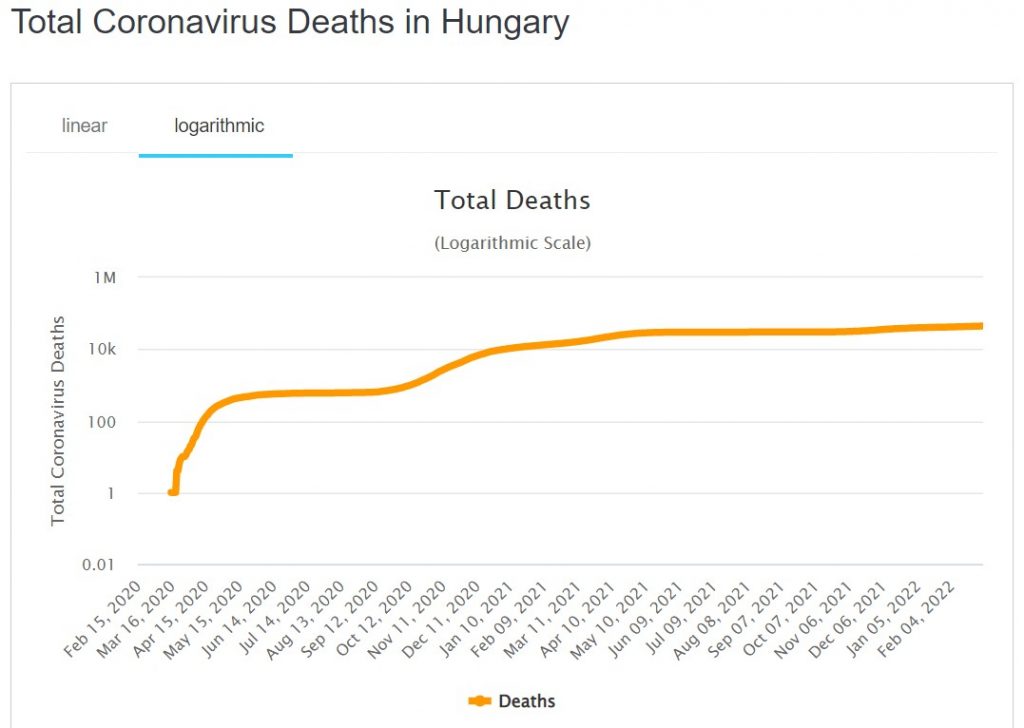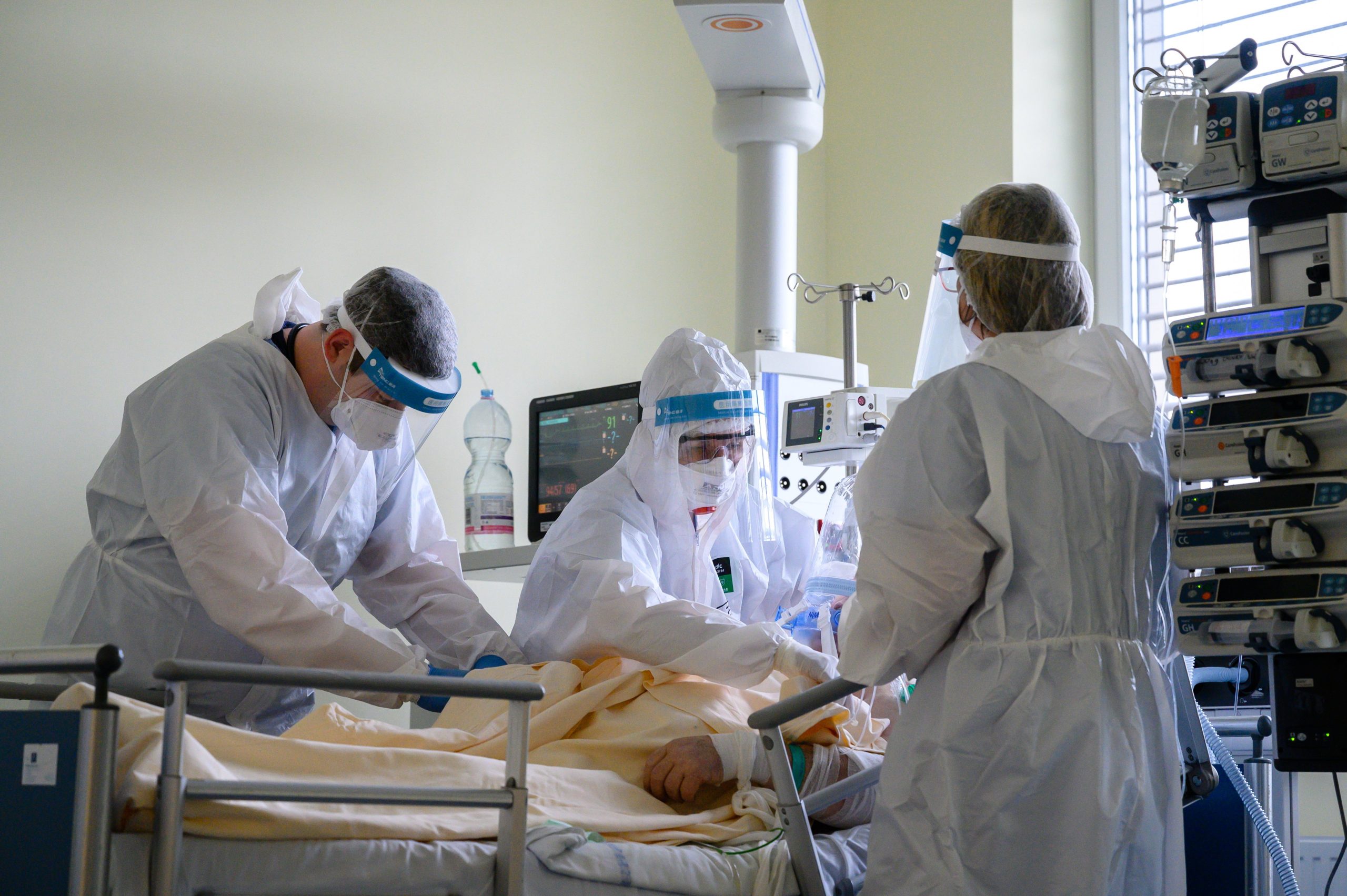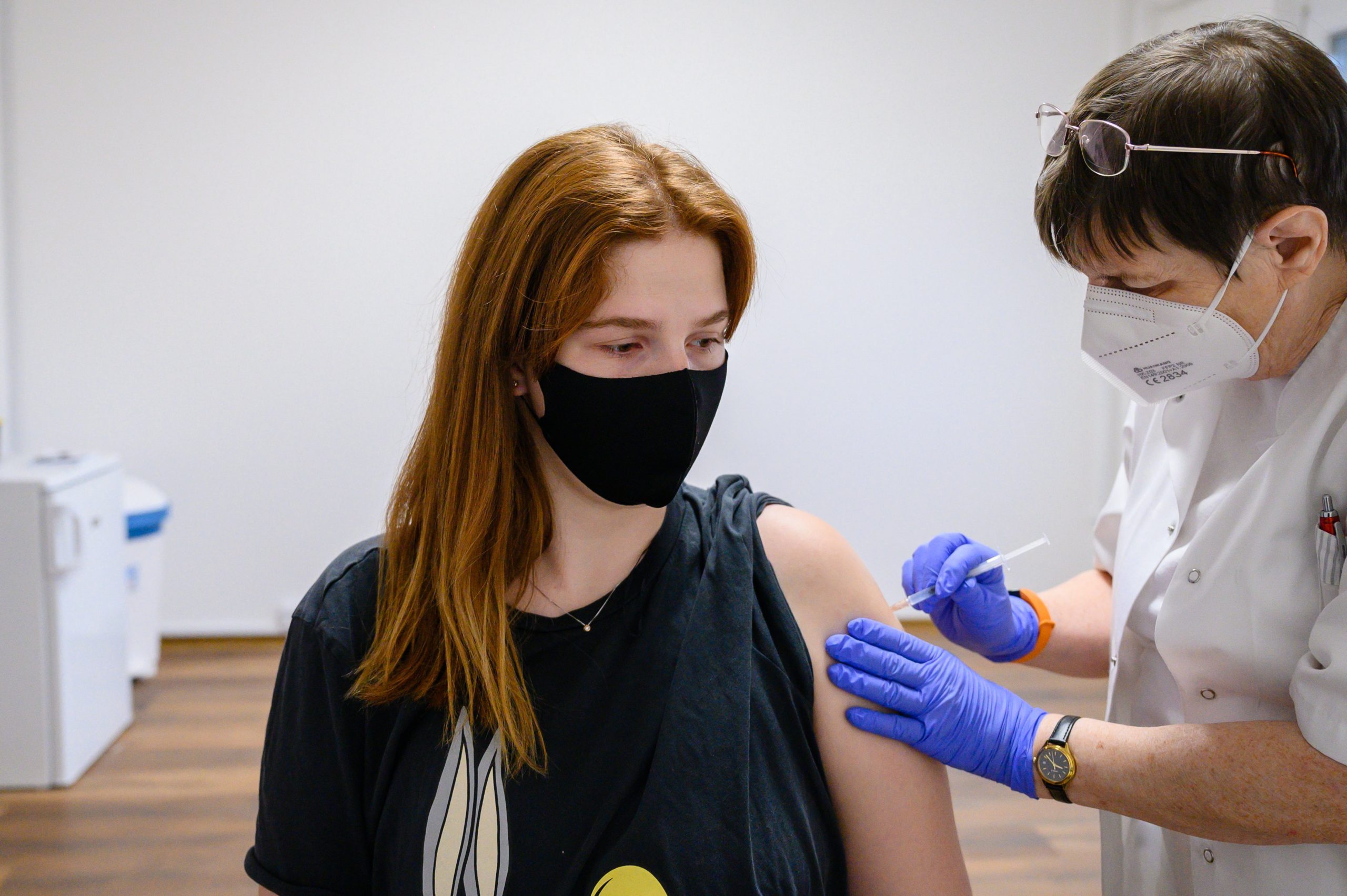The Omicron variant, which led to the fifth wave of the coronavirus epidemic in Hungary, has been slowing down over the past month. In February, the number of new infections fell significantly, as did the number of people in hospitals and on a ventilator, but wastewater samples also gave some encouraging results. Hungarian experts agree that the fifth wave is in retreat in Hungary, the question now is whether a sixth wave will follow.
After reaching its peak in Hungary at the end of January, the fifth wave brought by the omicron variant of the coronavirus hit a plateau in early February. Thereafter, the situation improved steadily in the second half of the month, with all key metrics of the epidemic showing a more favorable picture. Similar to other parts of the world, omicron, which is more contagious than the previous variants, caused a much larger outbreak in Hungary as well, but fortunately with a milder course of disease.
As the newly registered number of cases is perhaps the most important indicator of how fast the coronavirus is spreading, looking at the relevant February figures, we can see that the epidemic has been in retreat in Hungary.
The moving average of new daily cases stood at 15,961 at the beginning of February. After that the figure showed a gradual and continuous decline over the month, decreasing to a quarter of its previous value (3,980).
In the meantime, according to the National Public Health Institute (NNK), the concentrations of the coronavirus in Hungary’s wastewater systems have decreased to a greater extent in recent weeks.
Along with the declining number of cases, the proportion of positive tests, which had been record-breaking in the previous month, has also fallen significantly. If we take a look at the moving average of the proportion of positive tests, we can see that it dropped from 48% at the end of January to 29.2% at the end of February. Although there is clear evidence of improvement, the previous month’s lowest value is still above the WHO-recommended 5% rates of positivity in tests, and indicates an insufficient testing capacity, rendering Hungary unable to get an accurate picture of the epidemic situation.
Slow increase followed by a steady decline in hospitalizations, fatalities
Despite declining cases, hospital admissions and the number of people on ventilators continued to rise in the first half of February. However, the trend reversed in the second half of the month and then began a confident drop.
In the previous month, 15 February was the day with the highest number of hospital admissions: 5,195. In just two weeks, that number had fallen to 3,615.
The number of people on ventilator treatment followed a similar trend. Their number fell from 211 in mid-February to 126 in the same period last month.
Among the key metrics, the number of Covid deaths remained high the longest. We couldn’t really see any improvement until the very last week of February. Before that, its 7-day average went from 66 to 101 in the first two weeks of February and kept stagnating in the following days as well. The breakthrough came on the 25th of February, since then we can see declining numbers here as well.

via worldometers.info
The highest number of deaths in the previous month occurred on February 23rd, when 132 people lost their lives to the coronavirus. (this is about a third of the record number of deaths last April, when 311 people died in a single day)
During the last month in Europe, Hungary was not among the most affected countries regarding the number of cases. Both Austria and Slovakia have reported significantly higher numbers of Covid infections. Unfortunately, Hungary still remains among the countries with the worst fatality statistics. After Bulgaria and Bosnia and Herzegovina, population-wise, Hungary continues to have the highest Covid death rate on the continent, according to statistics by data aggregator wordometers.info
Hungary’s vaccination rate still lagging behind Western Europe
Approximately 62.6% of the Hungarian population has received their second vaccination so far, which is not a particularly high rate compared to Western Europe, but above average compared to other countries in the Central European region.
According to the most recent data from the European Centre for Disease Prevention and Control (ECDC), only 41.8 percent of the population in Romania has received a second vaccination, compared to 29.4 percent in Bulgaria.
In Slovakia, 50.6 percent of the population received a second dose, while in Poland it was 58.6 percent. However, Austria’s vaccination uptake is significantly better at 73.8 percent. Portugal leads the way with 85 percent vaccination coverage.
The situation is similar for third vaccinations: in Hungary, 38.7 percent of the population has been vaccinated, slightly above the regional average, but we are lagging behind Western Europe in terms of booster shots.
Featured photo illustration by Attila Balázs/MTI




